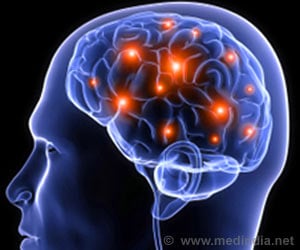Is there a single gene behind memory and learning? New research links KDM5B gene to memory formation and learning in mice.
- Reduced KDM5B gene function affects memory formation and learning abilities in mice
- KDM5B gene, previously linked to intellectual disabilities, plays a crucial role in brain development
- Insights into KDM5B gene function may pave the way for novel strategies to enhance memory and learning
TOP INSIGHT
Did You Know?
The KDM5B gene, once associated with intellectual impairments, now sheds light on how memories are formed in the brain, opening new avenues for treating cognitive disorders. #neuroscience #memoryresearch #medindia
How Reduced Gene Function Negatively Impacts the Brain
Researchers at King’s College London, the University of Exeter, and the University of California Irvine have discovered that reduced gene function in the brain leads to a loss of learning ability and memory, as well as a decrease in the brain’s ability to strengthen connections between neurons, which is critical in memory formation.KDM5B Gene Plays an Important Role in Learning and Memory
The team’s latest mouse study, published in the Journal of Neuroscience , shows that mice produced without a fully functional KDM5B gene have poorer learning and memory capacities. To rule out the idea that the effect was produced by an impact on brain development, the researchers decreased the amount of this gene in a second group of adult mice, namely in the hippocampus, a brain region crucial for memory. They discovered that diminished gene function caused epileptic convulsions in some mice as well as degradation of their learning and memory abilities. Laboratory tests revealed that the strengthening of connections between neurons during memory formation was diminished.Link Between KDM5B Gene and Intellectual Disability
Professor Albert Basson, whose research group started the work at King’s College London and has now moved to the University of Exeter, said, "Memory and the ability to learn are vital to our intellectual potential, but we still have a lot to learn about the underlying mechanisms. For more than a decade, the KDM5B gene has been related to autism and various forms of intellectual disability; however, a mutation in this gene alone is not always sufficient to produce these illnesses, therefore it has not been thoroughly investigated. Our findings demonstrate that KDM5B is necessary for learning and memory, and they provide new insight into the underlying mechanisms of memory and learning, which is critical on the route to discovering novel approaches to improve these capabilities (1✔ ✔Trusted SourceThe Intellectual Disability Risk Gene Kdm5b Regulates Long-Term Memory Consolidation in the Hippocampus
Go to source)."
KDM5B can change the structure of our cells’ genetic material, determining whether genes required for brain growth or function are expressed at the appropriate levels and at the proper time.
Reference:
- The Intellectual Disability Risk Gene Kdm5b Regulates Long-Term Memory Consolidation in the Hippocampus - (https://pubmed.ncbi.nlm.nih.gov/38575342/)
Source-Medindia
 MEDINDIA
MEDINDIA





 Email
Email










